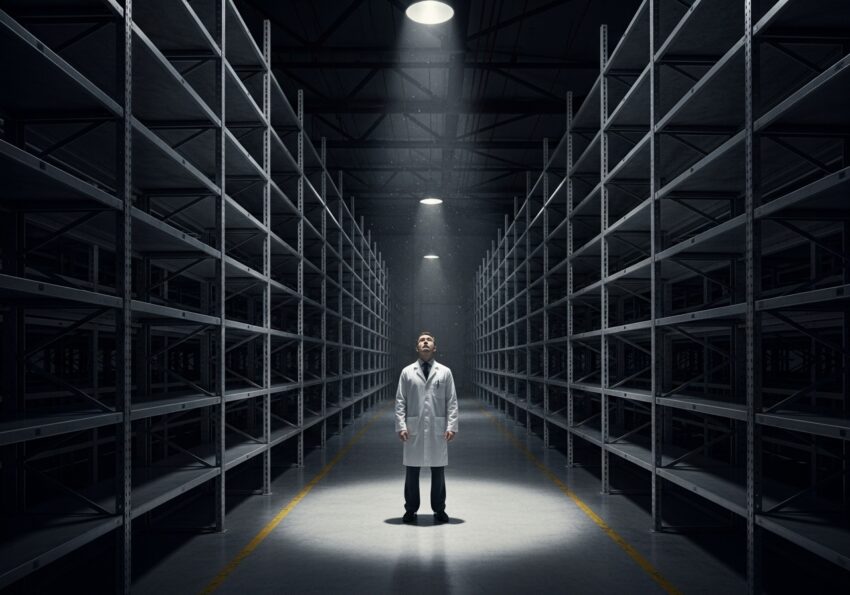America’s greatest strength has always been her independence—economic, military, and moral. But there’s a glaring vulnerability that should set off alarm bells for every patriotic American: We are dangerously dependent on foreign countries for the very drugs that keep us alive.
John Carney, economics editor at Breitbart News, nailed it during a recent appearance on “The Alex Marlow Show.” “We’re entirely reliant on the rest of the world for pharmaceuticals,” Carney said. “From everything like over-the-counter things… to more high-tech drugs, we’re severely dependent on foreign imports.” That’s not some fringe conspiracy theory—that’s a hard economic truth. And it should infuriate anyone who believes the United States should never be at the mercy of foreign governments when it comes to the health of our people.
This isn’t just about convenience—it’s about national security. What happens if nations like India or China decide to play hardball? What if the European Union, enraged by our unwavering support for allies like Israel, decides to pull the plug on essential medicines like statins or cancer treatments? These aren’t hypothetical scenarios; they’re very real risks in a world where global politics are shifting rapidly and unpredictably.
Let’s be very clear: no sovereign nation should ever be in a position where it needs to beg for antibiotics or insulin from a country halfway across the globe. And yet, thanks to decades of globalist trade policy and hollowed-out domestic manufacturing, that’s exactly where we are.
This didn’t happen overnight. For decades, the political class—both Republican and Democrat—sold out American manufacturing in exchange for cheap labor and short-term profits. The pharmaceutical industry was no exception. The logic went something like this: “Why produce a pill in Ohio when you can make it in Wuhan for a fraction of the cost?” That mindset may have padded corporate profits, but it left our drug supply chained to foreign shores.
And let’s not forget the COVID-19 wake-up call. Remember the panic when PPE and basic medical supplies were nowhere to be found? That was just the tip of the iceberg. Now imagine a future global dispute—over tariffs, climate policy, or military alliances—where foreign nations decide to throttle our access to life-saving medication. We wouldn’t just be vulnerable; we’d be hostages.
Carney’s warning about political weaponization of pharmaceutical supply chains should be taken seriously. “What happens if the E.U. doesn’t like our Israel policy?” he asked. “They say, okay, we’re not going to sell you your statins.” That’s not paranoia—it’s geopolitical reality. In a world increasingly driven by ideological agendas, countries are more than willing to use economic leverage to push their values. That includes medicine.
So where do we go from here? First, we need to reshore pharmaceutical manufacturing immediately. Not next year. Not when it’s politically convenient. Now. That means tax incentives for domestic drug production, deregulation to streamline FDA approvals, and serious investment in American pharmaceutical infrastructure. If we can build tanks and fighter jets in America, we can make aspirin and antibiotics here too.
Second, we need a national stockpile of essential medications—just like we have for oil and strategic metals. It’s absurd that we’ve spent decades planning for energy shortages but have no real contingency for a shutoff in drug imports. That has to change.
Finally, we must demand that our leaders—especially in Congress—stop putting globalist trade priorities ahead of American lives. If that means confronting Big Pharma lobbyists or renegotiating trade agreements, so be it. The American people should never have to choose between sovereignty and survival.
The era of blind dependence is over. President Trump has made it clear—America comes first. That means restoring our manufacturing base, securing our drug supply, and never, ever being beholden to foreign governments for the basic necessities of life. The time to act is now. We cannot wait for the next crisis to wake up. We’ve already seen what that looks like—and we may not get a second warning.
Click this link for the original source of this article.
Author: rachel
This content is courtesy of, and owned and copyrighted by, https://www.wethepeopledaily.com and its author. This content is made available by use of the public RSS feed offered by the host site and is used for educational purposes only. If you are the author or represent the host site and would like this content removed now and in the future, please contact USSANews.com using the email address in the Contact page found in the website menu.





